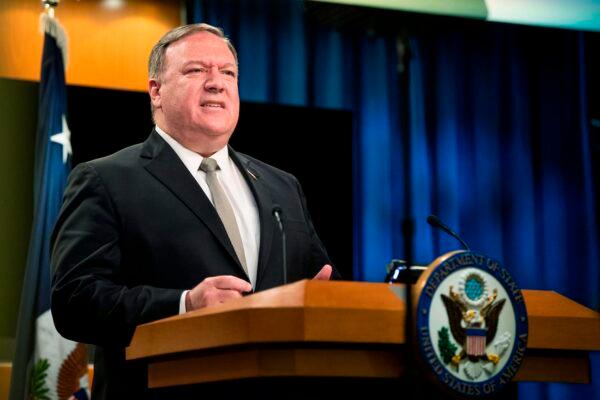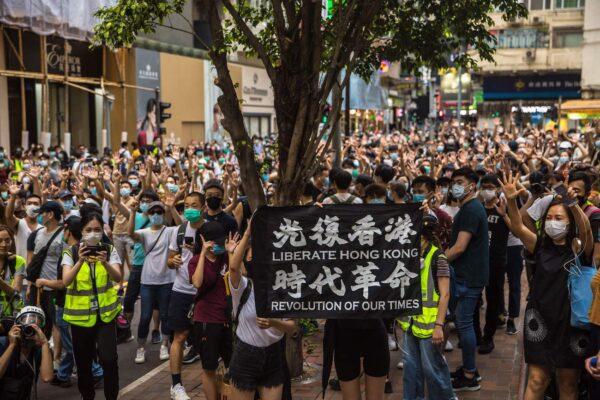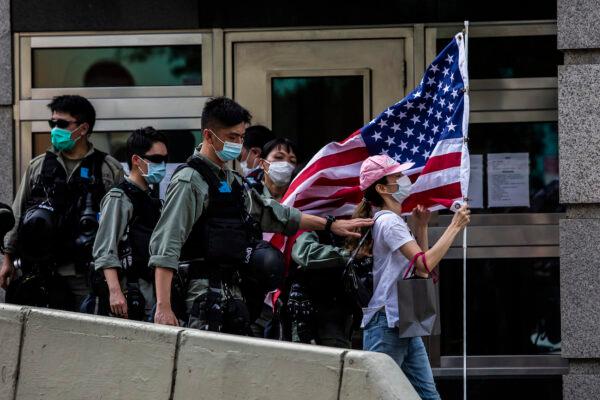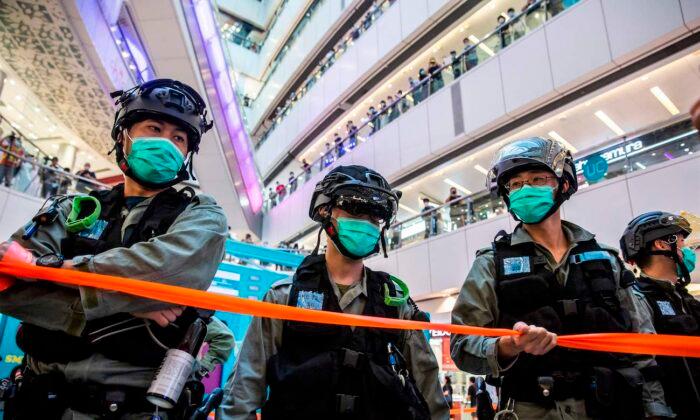The U.S. Department of State late Monday issued a statement strongly condemning the Chinese Communist Party’s crackdown on free speech in Hong Kong, following reports that pro-democracy books have been pulled from libraries in the city.
“Until now, Hong Kong flourished because it allowed free thinking and free speech, under an independent rule of law. No more.
“The United States condemns Beijing’s repeated failure to live up to its obligations under the Sino-British Joint Declaration, and these latest assaults on the rights and freedoms of the people of Hong Kong.”

Hong Kong was handed back from British colonial rule to Chinese sovereignty in 1997 with the express guarantee under the Sino-British Joint Declaration that the city’s high degree of autonomy and essential freedoms would be preserved under the principle of “one country, two systems” until 2047.
However, after a national security law on Hong Kong became effective late on June 30, a growing number of Hongkongers are considering fleeing the city due to fears that the freedoms that had distinguished Hong Kong from China—including freedom of speech—are now no more.
The draconian national security law became effective late on June 30 after ceremonial votes by China’s rubber-stamp legislature. The legislation was written and passed behind closed doors without the consultation of Hong Kong’s legislature or local government.
Under the new law, expressed political views that advocate for Hong Kong’s independence or liberation are illegal.

Public libraries have started to review books written by pro-democracy activists to see whether they violate the new law, and according to multiple reports, pro-democracy books have begun to disappear from libraries in Hong Kong.
The national security law also mandates that a new security bureau be established in the city. On July 3, Beijing appointed Zheng Yanxiong, known for his role in suppressing on 2011 anti-corruption protests in the southern village of Wukan, to head the new security bureau—which directly answers to the central government.
On July 4, Hong Kong police confiscated an American flag from a protester during a local demonstration celebrating July Fourth, citing breach of the new law.





